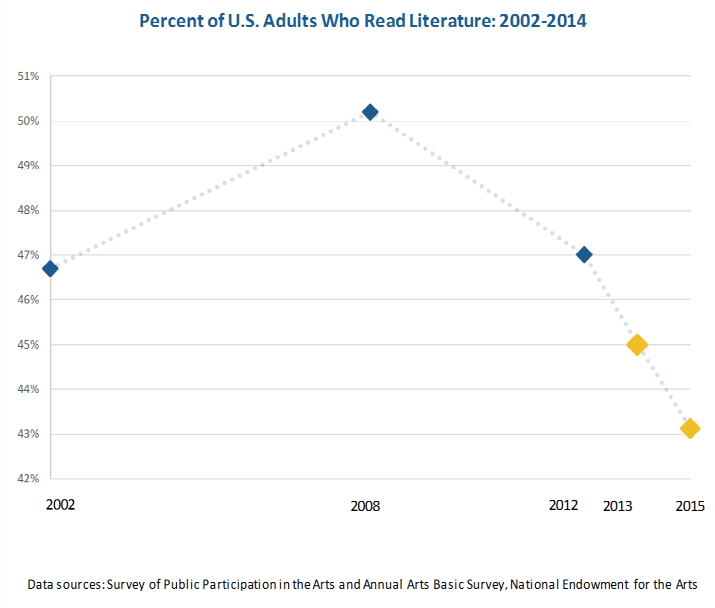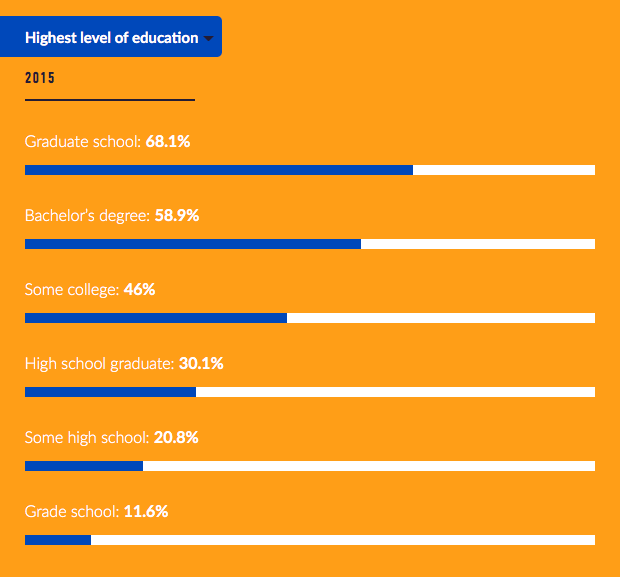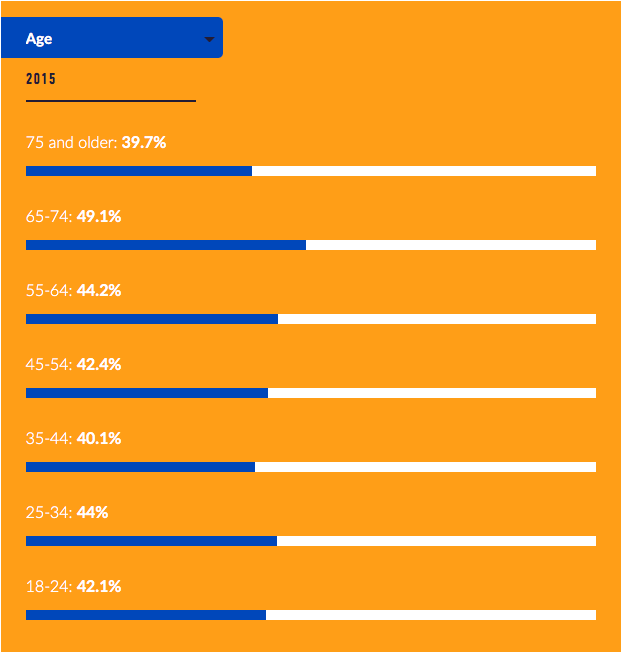news
America Is in a Literary Recession

The NEA’s Annual Arts Basic survey shows literary readership is at an all time low

Last month the National Endowment for the Arts published their Annual Arts Basic Survey (AABS) and the results were bleak, if not surprising. For decades there has been a downward trend in American adults who read literature — although there was a brief uptick in 2008 — but 2015 marks the first year in 33 cycles of research that the percentage has dropped below 45% to a dismal 43%.
While it looks bad, it’s important to note that the NEA only considers “reading novels, short stories, poems, or plays not required for work or school” as literary participation. With the exclusion of non-fiction, it’s hard to gauge how illiterate U.S. society truly is.
The study also shed some light on who is reading. Unsurprisingly, the more education one has, the more likely they are to read.

An individual with a graduate degree is more than twice as likely to consume literature than a high school graduate. The largest margins of difference are seen in this demographic factor. The gender gap in literature is also significant. Only 36% of men are reading literature, while about 50% of women are engaging in reading some type of literary form. (Let’s be clear that this isn’t only because of the Fifty Shades of Grey franchise.)
Ageists who want to fault millennials for the continual decline in literary reading are wrong to do so. Across the board, there wasn’t much considerable variation in the amount literature age groups read. Everyone is hanging out in the 39–49% range.

In the age of iPhone apps and Netflix streaming, it can be hard to find the time and concentration to read good literature. If you ever feel that you are among the 57% of Americans not reading enough, Electric Lit is always here with a recommendation, or a short story (oh, and we have an app for that).









